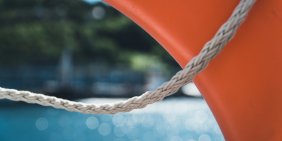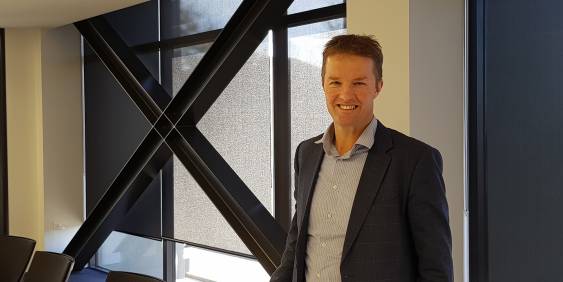
Mike Lay: from school board to the Canterbury Rugby Football Union

When Mike Lay decided to join the school board of Leeston Consolidated where his kids were studying, he never thought it would be the start of a thriving career in governance. After winning IoD’s Aspiring Director Award in 2013, he joined a Christchurch City holdings company as intern director as part of his prize. This experience, according to Mike, boosted his governance career. Fast forward years later, he has directorships in a number of organisations including as independent director and Vice Chair of the Canterbury Rugby Football Union. Mike shares with us his governance story, how he keeps himself on top of his game and why he values governance training.
Tell us a little bit more about yourself
I was born and bred in rural Canterbury and was educated at Christchurch Boys’ High. Growing up, I always believed I would end up on the family farm but my father encouraged me to explore other opportunities. After obtaining a degree at Lincoln University, I found myself entrenched in the accountancy profession as a partner in a firm in Christchurch at a young age. Still passionate about the rural sector, I began to specialise in agribusiness and in 2004 I started my own practice based in rural Canterbury. The business had rapid growth and we currently operate from three locations and continue to grow. My role in the firm has evolved from compliance to almost exclusively advisory based work. I now live on the family farm with my amazing wife Pauline, and our three children who are now starting to forge their own direction in life.
Tell us about some of the boards you are involved in
I am currently an Independent Director and Vice Chairman of the Canterbury Rugby Football Union and am proud to be a part of an organisation with such a rich history. Aside from being the leading provincial union in the field over the last decade – through our Mitre 10 Cup and Farah Palmer Cup
teams and our majority stake in the Crusaders Franchise – we are evolving and leading in many other ways. I believe we are the most inclusive and diverse provincial rugby union board in the country.
I recently stood down from the Selwyn Sports Trust which I chaired from its inception in 2013. Seeing the growth in this trust has been extremely rewarding, particularly around the programmes they now have in place with schools and the development of the Koru Games, a three-day tournament for year 7 and 8 children from across the South Island. Seeing children participating in sports on such a large scale is hugely gratifying.
From a business point of view, I am currently a director of two large farming companies and also part of a couple of advisory boards. I enjoy working with businesses that are in a growth phase and are looking to establish or further develop strong governance protocols.
Another area of interest for me is education, and I have chaired school boards and have recently stood down from the Christchurch Girls’ High School board which I chaired for 5 years.
What skills do you think are important for directors to have, given the changing context of governance?
I think it is essential to be able to think into the future and understand the opportunities and challenges that lie ahead for the business that you are charged with governing. It is important to be proactive and not reactive. I believe people skills are probably the most important skills that any director should possess. Some people may disagree with that statement but in my view, it’s all about the people and the empathy that comes with that.
What do you think is the biggest challenge for directors? How can directors address this?
One of the biggest challenges for directors is the pace of change. We are operating in an environment where the pace of change seems to be increasing at an alarming rate and this is not just limited to technology. Society is changing. A business cannot afford to sit still and has to keep reinvesting in its future, or it will get left behind.
What are you passionate about outside your governance work?
Outside of work, you will never find me too far away from a sports field. Unfortunately, mainly watching these days but I get a lot of pleasure out of that, particularly when my children are involved. Sport is definitely a passion of mine. It continues to play a big role in my life and I have even been able to squeeze out a few marathons in recent times.
Mike with wife Pauline participating in the New York Marathon
What do you enjoy most about being a member of IoD?
Aside from the training, the IoD provides a great network of people and the opportunity to tap into the wisdom of those who have been there and done that. You can learn so much from people whose hair is slightly greyer than yours!
What do you do to keep on top of your game?
First, I like to keep fit. Not only is it good for your heart and lungs, it provides an opportunity to get away from normal day-to-day stresses which is huge for your overall personal wellbeing.
Secondly, I like to read a lot. Not so much novels but news and business-related information. There are some quite inspirational people out there and I like finding out what makes them tick. It’s important to know what is happening out there and technology enables us to access an unlimited supply of knowledge.
I also feel it is important to be able to connect with people from all demographics. Volunteering in your community is a great way to achieve this.
Why do you think governance training is important? What particular IoD courses did you find really helpful? Why?
Good education is essential, and for governance it is no different. It is important to embed the core principles of governance, understand what they mean, and be able to successfully implement them in any board situation. As a result of winning the Aspiring Director Award, I completed the Governance Development Programme. I especially enjoyed this as the presenters all had “hard hat” real board experiences they were able to share with us. This helped embed some of the fundamentals required to be a successful director. In addition, I was also placed on the Board of a Christchurch City Holdings company as an intern which provided me with actual board experience. The IoD was able to facilitate that for me and I am extremely grateful for the opportunities they have provided.
What do you think is the value of being a Chartered Member?
Being a Chartered Member of IoD demonstrates that you have achieved the high standard required and have developed your skill set to a level whereby you can add real value in governance.
What’s the best advice you’ve been given as a director?
The best advice I have received came from my father who also served on multiple boards. His advice was simple: Listen to those around the table, respect other people’s opinion and work as a team. I am a big believer in teamwork. You will not always agree with everyone and that is the beauty of diversity of thought, but if you work as a team you will generally get a better outcome.


